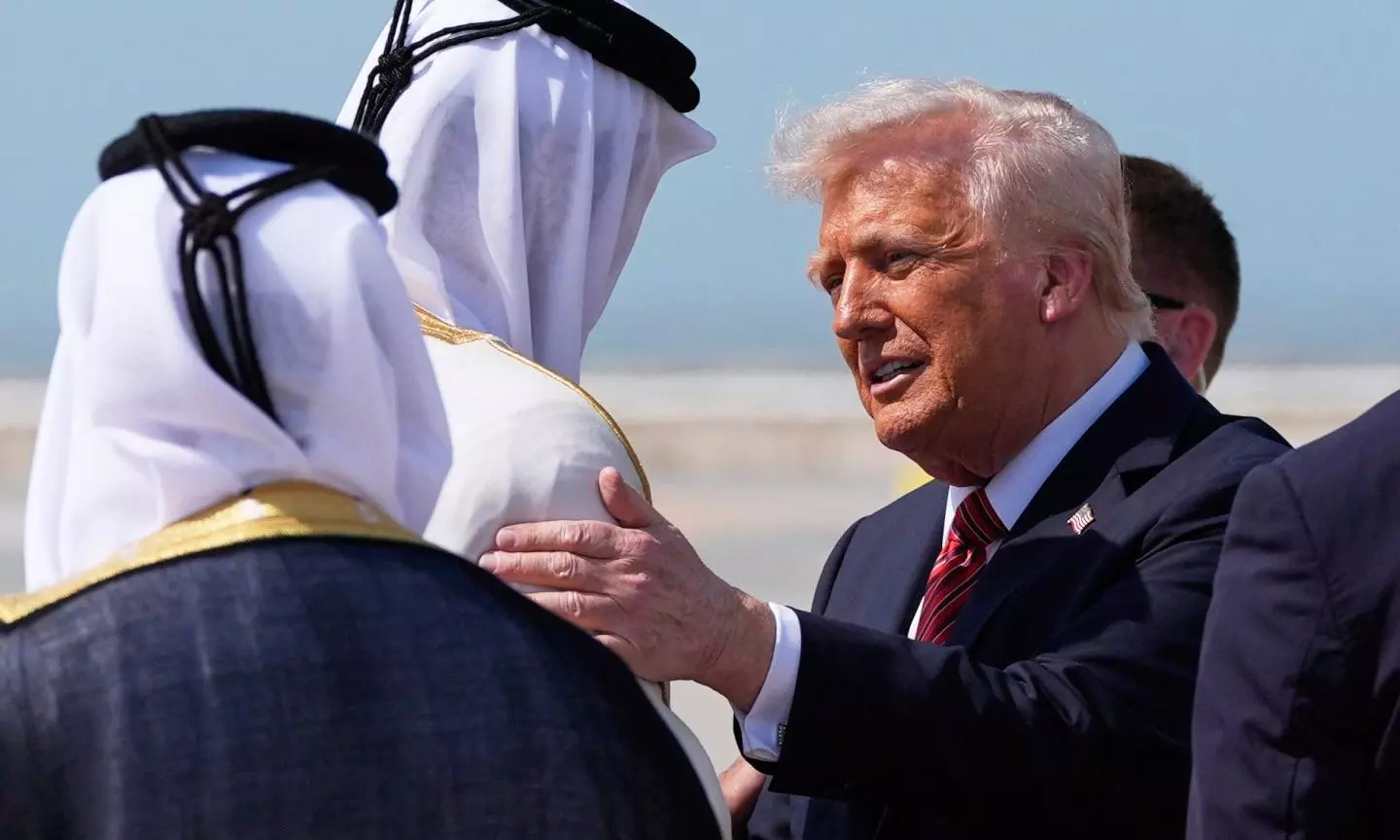
Trump accepting gifts from Gulf seen as selling US foreign policy to highest bidder
text_fieldsAccording to a report by The Guardian, former White House lawyers, diplomatic protocol officers, and foreign affairs experts have expressed deep concern over Donald Trump's conduct during his current term, accusing him of remaking US foreign policy to favour foreign benefactors while securing personal financial gains that far exceed those seen under previous administrations.
The report alleges that Trump's openness to gifts and investments from foreign states, particularly in the Gulf, is unprecedented and raises serious questions about the integrity of American diplomacy.
During his first major overseas diplomatic trip of the term, Trump was hosted lavishly by Gulf state leaders and reportedly finalised deals he claimed were worth trillions of dollars, all while promoting an “America First” policy.
However, the report argues that this new approach often prioritises the business interests of Trump and his associates over longstanding American commitments to human rights and international law.
The Guardian details how Trump’s personal wealth and that of his family have increased by over $3bn, with further unverified profits potentially arising from cryptocurrencies and real estate ventures linked to Trump-branded properties.
The report further states that business associates close to the former president have signed deals worth billions, suggesting that political allegiance to Trump may be rewarded with access to international contracts.
The gifting of a $400m Boeing 747-8 by Qatar to the US Department of Defense—believed to have been suggested by Trump for use as Air Force One—has drawn sharp criticism, with observers describing it as a violation of the US Constitution's emoluments clause, which bars presidents from receiving gifts from foreign governments.
Trump has dismissed the criticism and characterised the gesture as one that would be foolish to reject, but critics, including his own supporters, have raised alarms over its legality and ethical implications.
Further scrutiny has been directed at a $2bn investment from a UAE-controlled fund into a Trump-linked stablecoin, which critics believe could compromise US foreign policy in favour of Abu Dhabi.
An advisory memo sent to Congressional Democrats and cited by The Guardian describes these financial ventures as part of a broader crypto scheme aimed at enriching the Trump family, with critics warning that billions of dollars in cryptocurrency could be used to secretly influence American politics.
The Guardian notes that in contrast to previous administrations, which upheld strict ethics rules around foreign gifts and personal financial entanglements, the Trump administration appears to openly embrace what former officials view as serious conflicts of interest. The report recalls past incidents where even minor gifts required reimbursement or refusal to avoid ethical breaches, highlighting how Trump’s actions mark a departure from established norms of governance.
As Trump continues to strengthen ties with Gulf states while bypassing traditional allies like Israel, concerns have grown that US foreign policy is being sold to the highest bidder. Former officials and watchdogs cited in the report stress that such actions not only risk corruption but also threaten national security, as foreign investments—especially in untraceable cryptocurrency—could unduly shape American policy decisions.























